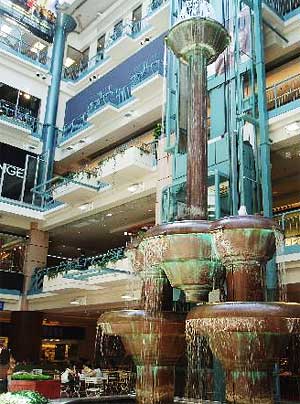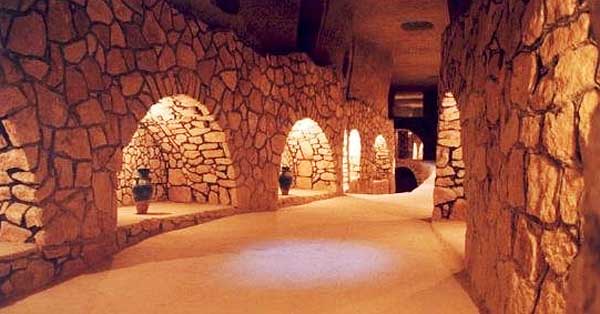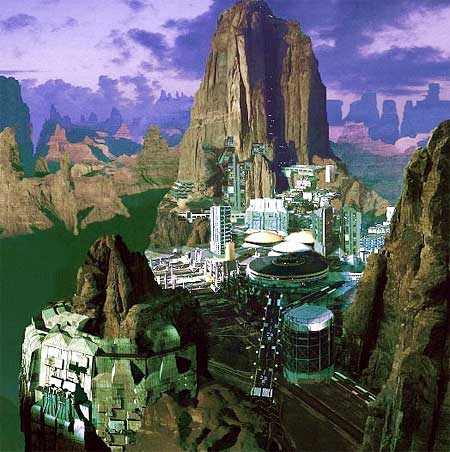Underground Cities
Fans of underground homes may be fans of underground cities as
well. I know I am. Underground cities don't generally bear any
resemblance to what we normally think of as a city. Their appearance
depends on the purpose for which the complex is used.
|
Many of these subterranean sites exist
- some as underground shelters or refuges, some as secure
working environments and others as living or shopping centers.
|
 Underground city in Montreal, Canada
Underground city in Montreal, Canada |
Many defensive fortresses are still in use, having been excavated
or tunneled out hundreds of years ago. An underground city may
be just a series of tunnels and caverns whose functions have changed
over time.
Deep beneath the streets of London, for instance, there are many
separate, but interconnected networks of tunnels. Running alongside
and intertwined with the sewers and the underground rail system
- the Tube - there are government and military establishments,
most of which, you won't find mentioned on any maps or drawings.
London Underground ...
It's quite possible (security permitting) to take an elevator
down into the bowels of the earth and travel around London, emerging
many miles away, having encountered busy offices, workshops and
disused stations along the way. You won't find road signs, either,
so you'll need to know where you're going when you're down there.
The world's largest (known) subterranean complex is said to be
the underground city in Montreal, Canada. Built to enable the
city's residents and visitors to go about their normal business
during the harsh winter months, there are multiple shopping malls
and office blocks interconnected by walkways and rail.

Underground city in Turkey
Access is via train stations and through many entry points around
the city at ground level. With restaurants, hotels, cinemas and
all the regular retail stores, this is truly an underground city,
welcomed by all who use it in cold or wet weather.
Underground cities also evolve for quite the opposite reasons
to Montreal's. Take the tiny South Australian town of Coober Pedy.
Officially designated as having a hot desert climate, you might
wonder why anyone would live there. Well, the promise of riches
never fails to attract prospectors and this being the world's
opal gem capital, is no exception.
Opal Gangnam Style ...
Opals were discovered there in 1915, and by 1999 the town had
acquired over a quarter million mine shaft entrances. Miners found
that by adapting their mining skills to boring out dugout caves
into the sides of the hills, they could live in constant, year-round
comfortable temperatures.
Humans are nothing if not resourceful when it comes to putting
a roof over their heads. You can usually build your home using
locally available natural materials - wood, stone, mud, straw,
ice, for example. In the Cappadocia region in Turkey, trees are
a scarce resource but there is an abundance of rock. This rock
is fairly strong but also soft enough to work easily. For this
reason, the people in the area, going back thousands of years,
have hewn caves from the stone to make their homes. This is understandably
a popular tourist attraction for visitors to Turkey.
|
Underground cities, by their very
nature, are difficult to map. In most cases, if you could
see a transparent view of the area, it would look like a
giant ant hill built by a huge colony of ants. Pictured
is a futuristic concept of what I am talking about.
|
 Underground city concept
Underground city concept |
But, historically, because many of the underground complexes
have evolved over long time spans, they contain forgotten, or
secret interconnecting paths and tunnels to other similar systems,
so we will probably never know the full extent of many of them.
When people think of underground cities in the United States
they usually speak of Chicago and Seattle as two examples. But
in America there are over a dozen underground cities in the North,
South, East, West and Midwest regions.
External Links
For a list of underground cities around the world check out this
Wikipedia entry:
http://en.wikipedia.org/wiki/Underground_city
|

